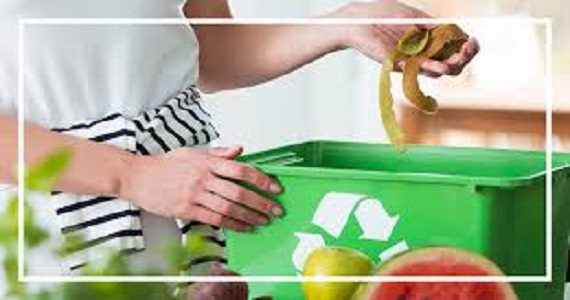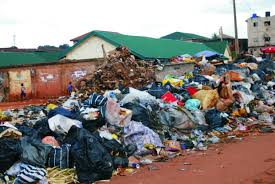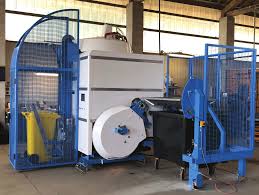Ways to Properly Dispose your Household Wastes
Household wastes refer to the kind of wastes that are generated from the use of some personal or family items within our houses.
For example, the wastes we generate from our regular household items like foodstuffs, toiletries, clothing materials like clothes, shoes, bags, etc, and other related household items.
Proper disposal of your household wastes is very important towards maintaining a clean, hygienic, and comfortable environment.
For this reason, a proper household waste disposal practice is highly recommended.
Before we proceed to the different ways you can properly dispose your household wastes, I would love to know how you currently use to dispose your wastes before coming across this article (you can use the comment section below for all your contributions).
Below are some of the household wastes we would be discussing today:
1. Cooking Oils and Kitchen Grease Wastes

Cooking oil wastes comprises wastes generated from leftover cooking oils, spoiled cooking oils, expired cooking oils, spilled cooking oils, unfinished cooking oils, etc.
Regardless of the source, here are the best ways to dispose of your cooking oils and kitchen grease wastes.
Your cooking oils or kitchen grease leftovers (wastes) should be properly be disposed in the following ways:
1. First, allow the oils to get cool in the pan
2. When cool enough, gently wipe off the oil wastes with a paper towel or tissue or any other material that you can throw away into your trash/waste bin.
3. If you have a large amount of the oil wastes, you can gently pour the oil wastes into a disposable jar or can, and once filled up, seal the container and throw it away carefully into your trash can along with your other regular garbage items.
The bad methods of disposing your cooking oils and kitchen grease wastes include:
Pouring your oils wastes down the drains/sinks. This is because the oils will turn to solids when cool.
The newly formed solids then turn down your pipelines, clogging them in the process.
Therefore I recommend that you should never pour your cooking oils or kitchen grease down the drain considering the negative implications of doing so.
Rather, follow the proper ways of disposing your cooking oils and kitchen grease wastes by following the procedures discussed above to avoid further issues which may produce more negative results.
Read Also: Zea Mays (Maize, Corn) Production: A Comprehensive Growing Guide
2. Household Food Wastes

Household food wastes comprise of wastes from the following items: food preparation wastes, leftover foods/materials, spoiled unopened packaged foods, commercial food wastes (which include unsalable foods (past use by), leftover foods from consumers, by-products from manufacturing of drink/food products, unsold foods), etc.
You can also search for the locations of some household waste disposal near me/you that is closest to you for a more easy access.
The Best Ways to Ways to Dispose your Food Wastes
Your household food wastes should be properly disposed in the following ways:
Household food wastes are often used to create biogas or compost for crop production (as explained below):
2.1 Recycling the Food Wastes to Create Methane
As an individual or commercial business, you can put your food wastes to good use by recycling the food wastes and generating value (passive income) from it.
Anaerobic Digestion Process to Produce Methane
The process of anaerobic digestion to produce methane includes the following:
– Food wastes should be properly sorted, all packaging removed and liquid added to the food wastes (waste liquids from food production) to create a soup-like mixture.
– The generated soup-like mixture should be warmed to encourage the growth of anaerobic bacteria.
– The mixture should be left for about 60 days to allow the bacteria to properly break down the food.
– This entire process finally creates methane, which can be used as biogas for energy and also as a rich fertilizer for growing more foods.
2.2 Converting Food Wastes to Compost Manure/Fertilizer
Food wastes can be properly stored until it naturally decomposes which then creates a compost fertilizer/compost manure.
To create your ideal compost from food wastes, use cardboard or newspaper to balance out the heat acidity, as well as microbe-rich soil to bolster microorganisms decomposing food.
Airflow is also encouraged for this process by alternating the layers of the soil and the cardboard and carefully turning the compost every two days.
This is because oxygen is needed for this process as it is an aerobic process, not anaerobic.
2.3 Food Wastes De-watering to Produce Animal Food/Feed
Food wastes can be converted to animal feeds by removing the water content from food wastes which can reduce the bulk and weight of the wet foods to about 80%.
Food wastes contain lots of water and can be properly dewatered by grounding and pushing through increasingly smaller tubes to squeeze out their moisture content.
The final product of this process becomes light, dry and small blocks of food that can be served to livestock and other animals as feed e.g. cattle feed.
Read Also: Cornmeal (Corn meal) – How to Make Cornmeal and Cornmeal Recipes
3. Household Toilet/Bathroom Wastes
Household toilet wastes comprise used toilet tissue papers, bathroom shampoos, creams, bubble baths, and other related toiletries.
For now, the best, yet imperfect method of disposing your tissue papers is to decant all your used or unwanted tissue papers into a jar/can and placing them into your normal trash can for proper disposal.
However, for other items like creams, bathroom shampoos, bubble bath, and their related items, they can be disposed of using the following methods:
3.1 The Dispose and Recycle Method
If the products are unusable, you can empty the contents of their products into your waste bin and recycle the containers if necessary.
3.2 Share with Others / Donations
Any of the products which are still usable can be shared with friends and family or can be donated to others like in hostels, churches, care homes, and other related places for charity.
4. Household Waste Clothing (Clothes, Shoes, Bags, etc.)
This is talking about how to dispose your old clothes, shoes, bags, etc. properly.
Some of the best ways to properly dispose your old clothing materials include:
4.1 Clothing Recycling
Search for clothing recycling bins or some big-name stored around your location and drop off your items to get them recycled.
You can also lookout for the location of some clothing recycling near me/you.
4.2 Donations
You can donate your clothing items to places that accept old items of clothing for charity.
4.3 Convert them to Compost Manure
Although not all clothes can be composted, however, items of clothing made of cotton can be composted as long as they are not blended with synthetic fibers like polyester.
To compost these, they should be finely shredded and all additional attachments like buttons and zippers should be removed.
Read Also: How to Recycle and Repurpose Plastic Items for Reuse
4.4 Covert them to Rags to Use around your House
Old items of clothing can be used as cleaning rags for dusting and cleaning your house and its surroundings, that way, you will save some money off buying rags while keeping your household clean by simply reusing otherwise destroyed items.
4.5 Use them for Arts & Crafts
Get artsy with your old items of clothing by crafting whether it is a sock puppet for your little ones or using the practice to test your inner fashion designer skills.
You can try having a bit of artistic fun with your old pieces of clothing materials, you’re never going to wear them again anyway.
This is where I will be wrapping up our today’s discussion on the different ways you can properly dispose your household wastes.
Do you have more questions or are there other waste household items you wish to be added to this list?
Let’s hear your thoughts through the comment section below.
You are also encouraged to please kindly share this information with your loved ones you feel can benefit from this article as we cannot reach everyone at the same time. Thank you for sharing!



